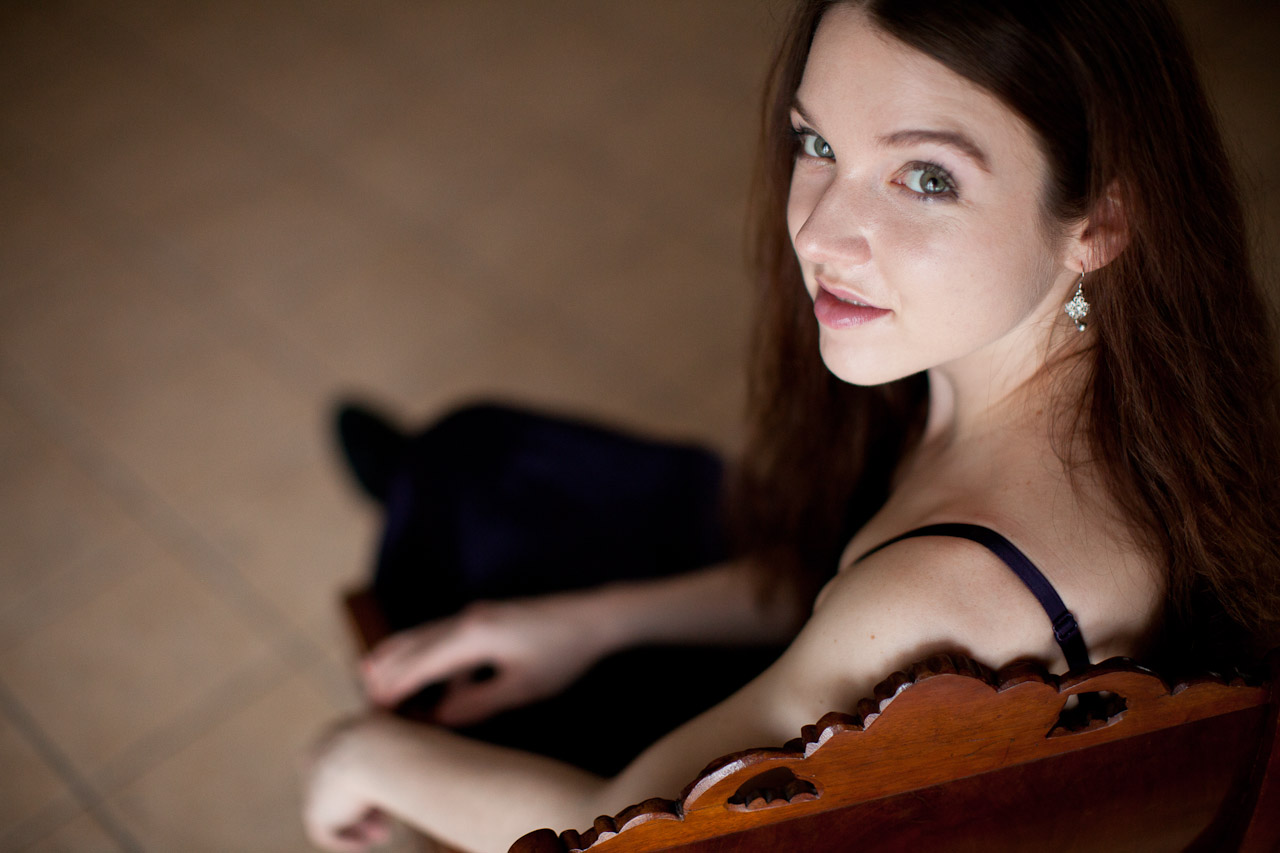
For a promising pianist in her twenties making her springtime debut at Weill Hall, Luisa Splett chose a program that was surprisingly autumnal. Opening with one of this reviewer’s personal favorites, Medtner’s quietly haunting “Sonata Reminiscenza” (from Op. 38 “Forgotten Melodies”), Ms. Splett played with a delicate, measured sound and a cerebral restraint that allowed the composition to reveal its own wistfulness, as if she were simply hearing it from afar. Showing minimal physical movement or romantic liberty and taking barely a nanosecond of rhythmic license, she might have elicited an initial description of being cold or mechanical, but by the end she had conveyed the piece with the purity of a still life painting, an artwork in which the beholder needs to take an active interpretive role with no predigesting or pandering. A strict adherence to each beat, which might also have seemed wooden at first, convinced me by the end that it enhanced the piece, evoking loss and the passage of time, as the work’s title and message suggest. The tone throughout was beautiful, thoughtfully prepared and mellow, though I did want more range at times. It was ultimately an unusual and moving performance, ending with a sense of surrender that was extremely poignant. It would be tedious to enumerate the skills, years of study, and international concerts that helped hone this performance, but suffice it to say that Ms. Splett had an early start, having been born to a family of musicians in Switzerland, and that she studied in Chile and Russia, where she is now preparing to defend a doctoral dissertation on the work of pianist/composer Emil Frey.
More retrospective and introspective music followed, namely the oft-ignored Ninth Sonata of Prokofiev, the last one he completed, around six years before he died. After the violent, biting, and sorrowful qualities of Prokofiev’s “War Sonatas,” the Ninth Sonata (Op. 103 in C Major) stands in complete contrast as a work of serenely narrative quality and less overt drama. Relative to the pyrotechnics in the earlier sonatas, it is far subtler in its demands on the pianist, though requiring imagination throughout, especially in its wittier moments. For this reason, one at times one wanted more contrast and projection from Ms. Splett, but her polish, as seen in the Medtner, was again outstanding. She showed such meticulous attention to the score that a keen, trained listener could probably take dictation from her performance and reproduce the exact score. This quality, along with choice of repertoire, may not easily gain the adulation of lazy or impatient audiences, but it should win the attention of purists and sincere musicians.
Schubert’s mature and meditative B-flat Sonata formed the second half of the program, another “last” of genre, composed in the final year of Schubert’s life. Ms. Splett handled it with what was starting to emerge as her signature serene polish, while also allowing the listener to plumb its depths in its darker moments. It was a fitting close to a unique and beautiful recital.
Once again, it is hard not to comment on how unusual it is for a pianist in the early years of a career to unify a program with what amounts to a theme of looking back in reflection. Understandably, many pianists play debuts that announce, “Here I come!” in displays of brilliance and drama designed to counter an attention deficit, but Ms. Splett is simply not one of them. It is not that she played it “safe” with her choices, as pianists who play these works well know, but that she simply put her program conception first, with intelligence, integrity and the perspective of an old soul. It was a memorable evening from a dedicated artist.
